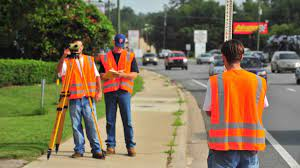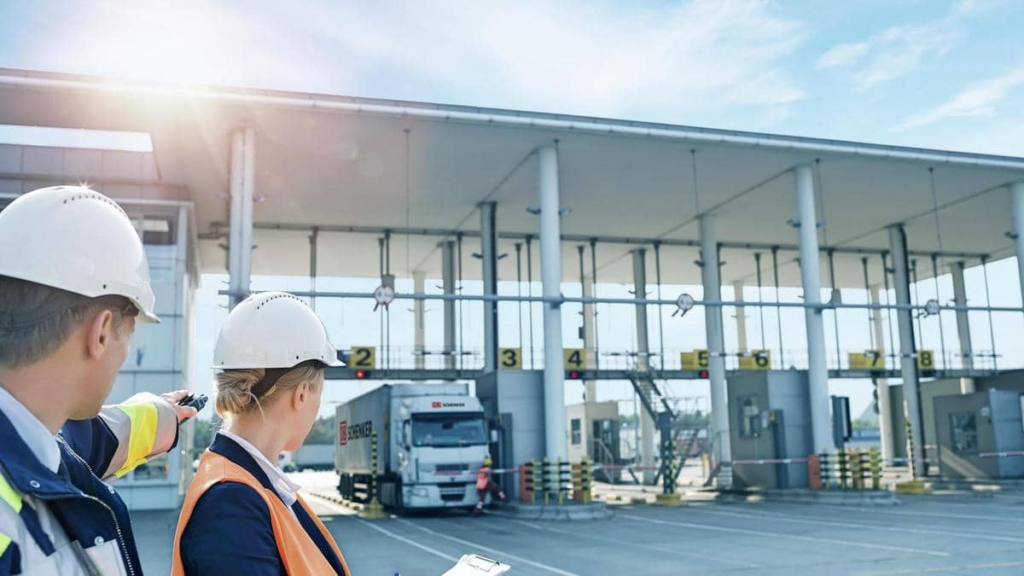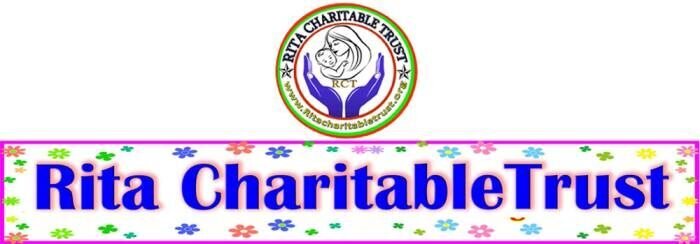Land Transportation Supervisor (1 years diploma)
Land Transportation Supervisor click here
Brief Job Description: The individual monitors day-to-day transportation
functions to ensure time, cost and quality of transport operations. S/He is also
responsible for maintenance of work records, monitoring of expenditure, and
resolving bottlenecks to ensure smooth operations

Qualification pack for Land Transportation Supervisor
Options
Option 1: Profit Management
The unit is about reviewing department wise budget, financial performance and
analyzing profitability and business performance trends
Option 2: Business Development
The unit is about preparing sales target, make pitch to existing clients and new
prospects. The individual liaise with customs, other government officials, vendors and
other contractors
Personal Attributes: The job holder should be medically and physically fit. S/he
should have attention to detail, problem-solving and mathematical skills and should
be observant and diligent in monitoring operations and performance. The individual
should have English and Vernacular language proficiency, demonstrable in spoken,
written and oral communication.
Qualification pack for Land Transportation Supervisor
Keywords /Terms Description
Core Skills/Generic
Skills5
Core Skills or Generic Skills are a group of skills that are key to learning and
working in today’s world. These skills are typically needed in any work
environment. In the context of the NOS, these include communication related
skills that are applicable to most job roles.
Function
Function is an activity necessary for achieving the key purpose of the sector,
occupation, or area of work, which can be carried out by a person or a group
of persons. Functions are identified through functional analysis and form the
basis of NOS.
Job role Job role defines a unique set of functions that together form a unique
employment opportunity in an organization.
Knowledge and Understanding
Knowledge and Understanding are statements which together specify the
technical, generic, professional and organizational specific knowledge that an
individual needs in order to perform to the required standard.
National Occupational
Standards (NOS) NOS are Occupational Standards which apply uniquely in the Indian context
Occupation Occupation is a set of job roles, which perform similar/related set of functions
in an industry.

Organisational Context
Organisational Context includes the way the organization is structured and
how it operates, including the extent of operative knowledge managers have
of their relevant areas of responsibility.
Performance Criteria Performance Criteria are statements that together specify the standard of
performance required when carrying out a task.
Qualifications
Pack(QP)
Qualifications Pack comprises the set of NOS, together with the educational,
training and other criteria required to perform a job role. A Qualifications
Pack is assigned a unique qualification pack code.
Qualifications Pack
Code
Qualifications Pack Code is a unique reference code that identifies a
qualifications pack.
Scope
Scope is the set of statements specifying the range of variables that an
individual may have to deal with in carrying out the function which have a
critical impact on the quality of performance required.
Sector
Sector is a conglomeration of different business operations having similar
businesses and interests. It may also be defined as a distinct subset of the
economy whose components share similar characteristics and interests.
Sub-Sector Sub-sector is derived from a further breakdown based on the characteristics
and interests of its components.
Sub-functions Sub-functions are sub-activities essential to fulfil the achieving the objectives
of the function.
Technical Knowledge Technical Knowledge is the specific knowledge needed to accomplish specific
designated responsibilities.
Description
3PL Third-party Logistics
CDL Commercial Driver’s License
CGST Central Goods and Service Tax
ERP Enterprise Resource Planning
EXIM Export Import
GC Goods Consignment
GPS Global Positioning System
GST Goods and Services Tax
HR Human Resources
IGST Integrated Goods and Services Tax
JIT Just In Time
LR Lorry Receipt
MHE Material Handling Equipment
MIS Management Information Systems
NOS National Occupational Standards
NSQF National Skills Qualifications Framework
ODC Over Dimensional Cargo
OH&S Occupational Health and Safety
OS Occupational Standards
OSHA Occupational Safety and Health Administration
PGA Partner Government Agencies
PO Purchase Order

PPE Personal Protective Equipment
PPE Personal Protective Equipment
QP Qualifications Pack
RTO Regional Transport Office
SLA Service Level Agreements
SOP Standard Operating Procedures
TAT Turn Around Time
Allocate resources and streamline operations in land transportation
Description This unit is about allocating resources and streamlining operations
Scope This unit/task covers the following:
• Prepare daily plan, allocate tasks and resources
• Monitor daily operations
• Resolve escalated issues
Range: Stationery, markers, Personal Protective Equipment (PPE), Enterprise Resource
Planning (ERP), computer, printers, Global Positioning System (GPS) tracker, Material
Handling Equipment (MHE), etc.
Performance Criteria(PC) w.r.t. the Scope
Element Performance Criteria
Prepare daily work
plan, allocate tasks
and resources
To be competent, the user/ individual must be able to:
PC1. obtain order details such as transport plans, delivery schedules, priority
orders, daily work allocation etc.
PC2. develop daily work plan factoring in priority cases, cases requiring exceptional
handling
PC3. get the work plan approved from the manager
PC4. arrange for daily shipment processing and quoting
PC5. allocate tasks to workers and associates
PC6. budget and allocate the requisite MHE for different tasks at hand
Monitor daily operations
To be competent, the user/individual on the job must be able to:
PC7. supervise deployment of cargoes in communication with the consignee’s
supervisor
PC8. supervise loading, unloading and processing of shipments
PC9. coordinate with other departments to plan movement of transports
PC10. monitor the performance of transport operations
PC11. take note of the pending tasks in each activity to plan for the next day and
plan for additional resources if required
PC12. measure and document processes as per productivity standards
PC13. liaise with officials and external stakeholders to streamline operations
PC14. feed regular updates into ERP and report to manager
Resolve escalated issues
To be competent, the user/ individual must be able to:
PC15. identify priorities as and when they come and allocate adequate resources to
address them
PC16. provide guidance to executives, associates and workers in executing activities
PC17. manage alternate transport in case of non-availability of vehicles
PC18. suggest possible solutions, way around to help resolve issues
PC19. assist in resolving freight related billing/documentation issues and carrier
performance related issues
PC20. escalate the issues to manager when external or additional help is required
Knowledge and understanding (K)
A. Organizational
context
(Knowledge of the
company /
organization and
its processes)
The individual on the job needs to know:
KA1. organizational procedures
KA2. company’s customer accounts
KA3. organization fee and charges structure
KA4. types of documentation in organization
KA5. organization policy of data maintenance, recording and handling
KA6. relevant safety and security procedures
KA7. different transport companies the organization works with and their
processes
KA8. procedure followed while booking trucks to pick up and transport
consignments

B. Technical knowledge
The individual on the job needs to know:
KB1. use of a computer and associated equipment
KB2. basic trouble shooting regarding material handling equipment
KB3. scheduling, planning, etc.
KB4. geographical locations and route maps
KB5. transit rules and regulations
KB6. types of goods being handled
KB7. federal and state laws pertaining to transportation
KB8. route optimization software
KB9. loading/unloading and transports that can be used for different types of
shipments
KB10. GPS and tracking devices
KB11. different cargo arrangements to maximize space utilization
KB12. special characteristics and handling requirements of goods, if any
Skills (S)
A. Core skills/
generic skills
Reading skills
The user/individual on the job needs to know how to read:
SA1. work instructions and customer requirement
SA2. schedule and plan for shipment
SA3. information from ERP reports and computer generated reports
SA4. legal documents of the shipment/ goods
SA5. checklists and daily reports
Writing skills
The user/individual on the job needs to know how to:
SA6. write work-orders and instructions for resources
SA7. prepare list of activities, delays, etc.
SA8. write end of the day reports
SA9. maintain records as per company’s policy
Oral communication (listening and speaking skills)
The user/individual on the job needs to know how to:
SA10. listen and understand the requirements of the client or the manager
SA11. communicate clearly in local language to transporter
SA12. communicate effectively with operational staff at all levels
B. Professional skills Decision making
The user/individual on the job needs to decide:
SB1. when to escalate an issue
SB2. which shipments to prioritse
SB3. whether alternate route is to be planned or alternate transport to be sent in
case a delivery/ pickup vehcile is stuck
Plan and organize
The user/individual on the job needs to know how to:
SB4. plan and estimate the co-ordination required considering customer
requirement
SB5. develop plan based on customer specification
SB6. plan for transportation and packaging of cargo
SB7. plan for resource requirement and utilization during peak and non-peak hours
Customer centricity
The user/individual on the job needs to know:
SB8. importance of customer and internal timelines
SB9. the urgency of certain tasks as escalated by different department
SB10. how to take prompt action on queries raised by the customer
Problem solving
The user/individual on the job needs to know how to:
SB11. identify trends/common causes for delays, issue in tracking, etc. and resolve
the same over call with the client
SB12. identify small bottlenecks and operational problems and provide alternate
solutions for the same
SB13. keep contingent plan ready in case of delays or any issue
Analytical thinking
The user/individual on the job needs to know how to:
SB14. assess the resource requirement for a particular task at hand
SB15. assess and prepare for backup transport in case of continous delays
SB16. discover more efficient and productive ways to streamline the process
Critical thinking
The user/individual on the job needs to know how to:
SB17. identify best possible solution for route planning
SB18. interpret and act upon complex situation in transit issues
SB19. priortise the work flow based on urgent requirements
SB20. think tactically to handle adverse situations, with attention to details
Perform vehicle marshall duties
Description This unit is about planning and carrying out marshalling of vehicles
Scope This unit/task covers the following:
• Plan and prepare for marshalling of vehicles
• Carry out marshalling of vehicles

Range: Stationery, markers, Enterprise Resource Planning (ERP), computer, printers,
Global Positioning System (GPS) tracker, safety equipment etc.
Performance Criteria(PC) w.r.t. the Scope
Element Performance Criteria
Plan and prepare for
marshaling of
vehicles
To be competent, the user/individual on the job must be able to:
PC1. determine the work allocation using traffic management plan
PC2. wear required personal protective equipment required for marshalling duties
PC3. check if the area is clear and suitable for vehicle manoeuvring activities
PC4. arrange for clearances of obstacles and distractions from the vehicle path
PC5. confirm vehicle safety checks including reversing aids have been executed
Carry out marshalling
of vehicles
To be competent, the user/individual on the job must be able to:
PC6. ensure safe manoeuvring area is maintained during vehicle movement
operations
PC7. establish safe marshalling position and maintain an appropriate field of vision
PC8. use hand signals and other communication methods to control the movement
of vehicles
PC9. maintain and comply with site safety demarcation arrangements and control
measures
Knowledge and Understanding (K)
A. Organizational
context
(Knowledge of the
company /
organization and
its processes)
The individual on the job needs to know:
KA1. organizational procedures
KA2. company’s customer accounts
KA3. organization fee and charges structure
KA4. types of documentation in organization
KA5. organization policy of data maintenance, recording and handling
KA6. relevant safety and security procedures
KA7. different transport companies the organization works with and their
processes
KA8. procedure followed while booking trucks to pick up and transport
consignments
B. Technical knowledge
The individual on the job needs to know:
KB1. roles and responsibilities of a vehicle marshal
KB2. requirement of site specific risk assessment and the emergency with respect to marshaling activities
KB3. scheduling, planning, etc.
KB4. geographical locations and route maps
KB5. transit rules and regulations
KB6. types of goods being handled
KB7. federal and state laws pertaining to transportation
KB8. route optimization software
KB9. loading/unloading and transports that can be used for different types of
shipments
KB10. GPS and tracking devices
KB11. different cargo arrangements to maximize space utilization
KB12. special characteristics and handling requirements of goods, if any
Skills (S)
A. Core skills/ generic
skills
Reading skills
The user/individual on the job needs to know how to read:
SA1. work instructions and customer requirement
SA2. schedule and plan for shipment
SA3. information from ERP reports and computer generated reports
SA4. legal documents of the shipment/ goods
SA5. checklists and daily reports
Writing skills
The user/individual on the job needs to know how to:
SA6. write work-orders and instructions for resources
SA7. prepare list of activities, delays, etc
SA8. write end of the day reports
SA9. maintain records as per company’s policy
Oral communication (listening and speaking skills)
The user/individual on the job needs to know how to:
SA10. listen and understand the requirements of the client or the manager
SA11. communicate clearly in local language to transporter
SA12. communicate effectively with operational staff at all levels
B. Professional Skills Decision Making
The user/individual on the job needs to decide:
SB1. when to escalate an issue
SB2. which shipments to prioritse
SB3. whether alternate route is to be planned or alternate transport to be sent in
case a delivery/ pickup vehcile is stuck

Plan and organize
The user/individual on the job needs to know how to:
SB4. plan and estimate the co-ordination required considering customer requirement
SB5. develop plan based on customer specification
SB6. plan for transportation and packaging of cargo
SB7. plan for resource requirement and utilization during peak and non-peak hours
Customer centricity
The user/individual on the job needs to know:
SB8. importance of customer and internal timelines
SB9. the urgency of certain tasks as escalated by different department
SB10. how to take prompt action on queries raised by the customer
Problem solving
The user/individual on the job needs to know how to:
SB11. identify trends/common causes for delays, issue in tracking, etc. and resolve
the same over call with the client
SB12. identify small bottlenecks and operational problems and provide alternate
solutions for the same
SB13. keep contingent plan ready in case of delays or any issue
Analytical thinking
The user/individual on the job needs to know how to:
SB14. assess the resource requirement for a particular task at hand
SB15. assess and prepare for backup transport in case of continuous delays
SB16. discover more efficient and productive ways to streamline the process
Critical thinking
The user/individual on the job needs to know how to:
SB17. identify possible obstacles in the vehicle route
SB18. interpret and act upon complex situation in transit issues
SB19. priortise the work flow based on urgent requirements
SB20. think tactically to handle adverse situations, with attention to details
Review transport documentation
Description This unit is about reviewing documents for transport
Scope This unit/task covers the following:
• Verify mandatory documents
• Conduct end of the day closing activities and report to manangement
Range: Standard Operating Procedures (SOPs), standard forms, stationery, markers,
Enterprise Resource Planning (ERP), computer, printers, etc.
Performance Criteria(PC) w.r.t. the Scope
Element Performance Criteria
Verify mandatory
documents
To be competent, the user/individual on the job must be able to:
PC1. review transport schedule and booking records with reference to plan
PC2. prioritize the shipments to be delivered/picked-up
PC3. examine Lorry Receipt (LR), Goods Consignment (GC), transit insurance and
tax permits for correctness and accuracy with respect to order
PC4. check inbound documentation for accuracy prior to reception
PC5. verify all freight invoices and resolve documentation problems if any
PC6. review signed agreement for any errors or discrepancies
Conduct end of the
day closing activities
and report to
management
PC7. obtain daily status of documents from executives and associates
PC8. compile list of undelivered shipments and contact consignees of undelivered
shipments to arrange for alternate deliveries
PC9. prepare daily operation reports in terms of cargo movement, total loading
and unloading activities, resource utilization, manpower deployment and
other parameters as per organisational requirement
PC10. report daily damages, Material Handling Equipment (MHE) repair
requirements, accidents, transport delays, etc.
Knowledge and Understanding (K)
A. Organizational
context
(Knowledge of the
company /
organization and
its processes)
The individual on the job needs to know:
KA1. organizational procedures
KA2. company’s customer accounts
KA3. organization fee and charges structure
KA4. types of documentation in organization
KA5. organization policy of data maintenance, recording and handling
KA6. relevant safety and security procedures
KA7. different transport companies the organization works with and their
processes
KA8. procedure followed while booking trucks to pick up and transport
consignments
Technical knowledge
The individual on the job needs to know:
KB1. use of a computer and associated equipment
KB2. basic trouble shooting regarding material handling equipment
KB3. scheduling, planning, etc.
KB4. geographical locations and route maps
KB5. transit rules and regulations
KB6. types of goods being handled
KB7. federal and state laws pertaining to transportation
KB8. route optimization software
KB9. loading/unloading and transports that can be used for different types of
shipments
KB10. Global Positioning System (GPS) and tracking devices
KB11. different cargo arrangements to maximize space utilization
KB12. special characteristics and handling requirements of goods, if any
Skills (S)
A. Core skills/
generic skills
Reading skills
The user/individual on the job needs to know how to read:
SA1. work instructions and customer requirement
SA2. schedule and plan for shipment
SA3. information from ERP reports and computer generated reports
SA4. legal documents of the shipment/ goods
SA5. checklists and daily reports
Writing skills
The user/individual on the job needs to know how to:
SA6. write work-orders and instructions for resources
SA7. prepare list of activities, delays, etc
SA8. write end of the day reports
SA9. maintain records as per company’s policy
Oral communication (listening and speaking skills)
The user/individual on the job needs to know how to:
SA10. listen and understand the requirements of the client or the manager
SA11. communicate clearly in local language to transporter
SA12. communicate effectively with operational staff at all levels
B. Professional skills Decision making
The user/individual on the job needs to decide:
SB1. when to escalate an issue
SB2. which shipments to prioritse
SB3. whether alternate route is to be planned or alternate transport to be sent in
case a delivery/ pickup vehcile is stuck
Plan and organize
The user/individual on the job needs to know how to:
SB4. plan and estimate the co-ordination required considering customer
requirement
SB5. develop plan based on customer specification
SB6. plan for transportation and packaging of cargo
SB7. plan for resource requirement and utilization during peak and non-peak hours
Customer centricity
The user/individual on the job needs to know:
SB8. importance of customer and internal timelines
SB9. the urgency of certain tasks as escalated by different department
SB10. how to take prompt action on queries raised by the customer
Problem solving
The user/individual on the job needs to know how to:
SB11. identify trends/common causes for delays, issue in tracking, etc. and resolve
the same over call with the client
SB12. identify small bottlenecks and operational problems and provide alternate
solutions for the same
SB13. keep contingent plan ready in case of delays or any issue
Analytical thinking
The user/individual on the job needs to know how to:
SB14. assess the resource requirement for a particular task at hand
SB15. assess and prepare for backup transport in case of continous delays
SB16. discover more efficient and productive ways to streamline the process
Critical thinking
The user/individual on the job needs to know how to:
SB17. identify best possible solution for route planning
SB18. interpret and act upon complex situation in transit issues
SB19. priortise the work flow based on urgent requirements
SB20. think tactically to handle adverse situations, with attention to details









